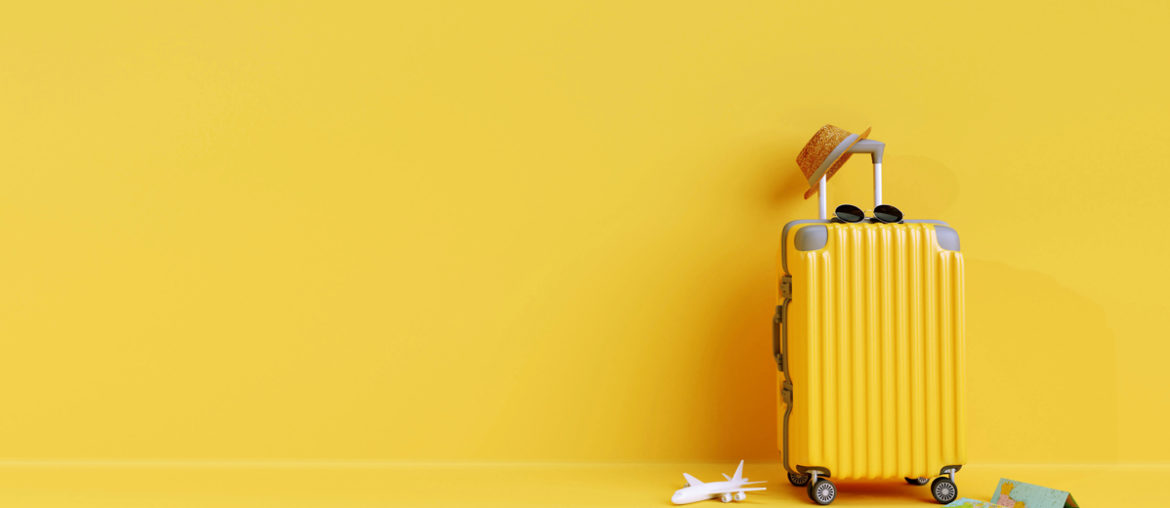Minimalism is an ancient lifestyle, practiced throughout time and cultures by everyone from Buddhist monks to ascetic philosophers. In our modern world of plenty, however, many people around the world have houses stuffed full of stuff they don’t need or even use. However, most researchers now believe that this overabundance is causing stress and mental fatigue.
Minimalism, conversely, is rising in popularity due to its positive mental health benefits. Minimalists have more focus, self-confidence, and positivity. If you’re wondering how to live minimally, then here are 10 simple changes anyone can make to become a bit more minimalist.
1. Halve Your Wardrobe
If you’re looking for a place to start cutting down on how much you own, then open up your wardrobe. With clothes being so cheap, people tend to accumulate far more of them than they really need. This makes it an easy way to make progress towards minimalism. The results are seen instantly since you’re able to physically compare the difference between before and after your clear-out.
Most people have more than twice the amount of clothes they need. Therefore, why not start by halving your wardrobe? If you have 10 t-shirts, pick your five favorites and donate or sell the rest. Over the next week, you’ll find getting dressed a quicker and less stressful task. With your options minimized, the decision of what to wear is easy.
2. Pack Away Don’t Throw Away
This technique has worked well for many people. Completely getting rid of items is a daunting task – what if it turns out you need them later on? However, packing them into bags, suitcases, and boxes carries no risk. If you’re serious about becoming minimalist, then it can really help to pack away literally everything you own.
Then, simply unpack items as and when you need them. You’ll probably want something to wear along with a toothbrush and toothpaste. Over the next few weeks, either use what you’ve already unpacked or find something new if you need it. After this time, anything that hasn’t been unpacked is something you don’t need and you can get rid of it.
3. Try Single-Bag Travel
If you’ve ever traveled long-distance, then you’ll know the stress of hauling around a heavy suitcase. That’s why many long-term travelers end up adopting a minimalist lifestyle by default. Being able to pack all your belongings into a single bag or suitcase allows you to travel freely between destinations. It’s even better if this bag is small enough to bring on the plane with you, rather than checking it in.
Through traveling, you’ll learn how to live minimally. In doing so, you’ll realize the benefits of this kind of lifestyle. Then, when you return home, why not continue with just a bag’s worth of stuff? You might have a few cooking items beyond this but for the most part, you don’t need more things when at home than when traveling.
4. Empty Surfaces
If you want to make progress quickly, then start with visible areas. This will keep you motivated by offering immediate satisfaction as you move towards minimalism. Go around your home, clearing bathroom shelves, kitchen countertops, and coffee tables. Only leave a few carefully selected items in visible locations.
Being surrounded by decluttered space reduces mental fatigue. Clearing up surfaces, therefore, offers an almost immediate boost in mental wellbeing. Plus, next time you need to dust, you’ll complete the work in record time.
5. Declutter Room by Room
Like any big task, becoming minimalist can be made either by breaking it down into more manageable chunks. This is the key to being productive without experiencing burnout. Don’t try to declutter your entire life in one weekend. Instead, pick a room and focus on that. It could be your bedroom, kitchen, or any other room.
A great place to start would be your home office. This is where you need to create a sanctuary that’s free of distractions. Fill your office only with items that help you stay focused and get more done. If you can reduce stress and fatigue in your work life, then doing the same for the rest of your life will also be achievable.
6. Justify New Purchases
The biggest barrier to becoming a minimalist is the urge to buy new things. Businesses use a range of psychological tricks to make you buy things you don’t need. Most people are in the mindset of always buying new stuff in the hope it will make them happier. You need to break out of this habit and adopt a new way of thinking.
Every time you walk into a store and think about buying something, try and justify it to yourself. Will this product replace something you already have at home? In this case, it’s an upgrade that won’t increase the total number of items you own. Alternatively, is this something you really need that will offer a genuine improvement in your life? If in doubt, leave the store and come back in a few days when you’ve thought it through without the pressure of in-store marketing tricks.
7. Reduce Gradually
It can be tempting to become a hardcore minimalist overnight. Everyone wants to make quick progress. However, it’s a completely different lifestyle and one that needs to be gradually adjusted to. Start off slowly and ease towards a more minimalist lifestyle until you find the perfect balance.
If you go too far, then you might be put off when it doesn’t work out for you. Furthermore, getting rid of huge amounts of stuff is a stressful task in itself. Just do a little bit at a time, maybe getting rid of just five items a week until you feel comfortable with what you own. This way, it won’t become overwhelming and you’ll be able to sustain this lifestyle for long into the future.
8. Keep a Note of Positive Effects
As you gradually shift to a minimalist lifestyle, you might not notice a significant and dramatic improvement right away. As you embark on this journey, note down how your life has improved. Are you getting ready more quickly in the mornings? Do you feel reduced stress or anxiety levels? Note these down and use them as motivation to continue down this path.
If you fail to be mindful of the positive effect minimalism is having on your mental health, then it can be easy to fall back into bad habits. Noting down how you feel each day only takes a couple of minutes. Over time, you’ll have a journal full of reasons to stay minimal.
9. Invest in Minimalist Products
Try to buy products that help you become a better minimalist. For instance, if you want to reduce waste, you can buy a travel mug to take with you to coffee shops, glass food prep boxes, and sustainable grocery bags. Minimalism is generally a cheaper lifestyle but it can take some upfront investment to get the ball rolling.
The products you buy should be of the highest quality. From clothes to electronics, buying the most well-made version will ensure it lasts a long time, even with regular heavy usage. The great thing about being a minimalist is that you can own the best versions of products but, because you own fewer things, you won’t be spending any more money.
10. Find Joy in Your Surroundings
Ultimately, a minimalist lifestyle is about joy. Take time to appreciate what you have and the environment you live in. If you’re located in a single home, then add a few carefully selected decorations to make it your own. Most people clutter their walls with random trinkets they’ve picked up throughout their lives. By being more selective, you can create an environment that makes you feel good. Plants, family photographs, and art made by friends make for joyful decorations.
When it comes to how to live minimally, there’s no secret. It’s a gradual process and a lifelong commitment. However, it doesn’t have to be difficult or stressful. The 10 tips above are methods that anyone can use to shift towards a more mindful, mentally healthy, minimalist lifestyle.
Where to next? Find flexible month-to-month rentals across the globe on Anyplace.





